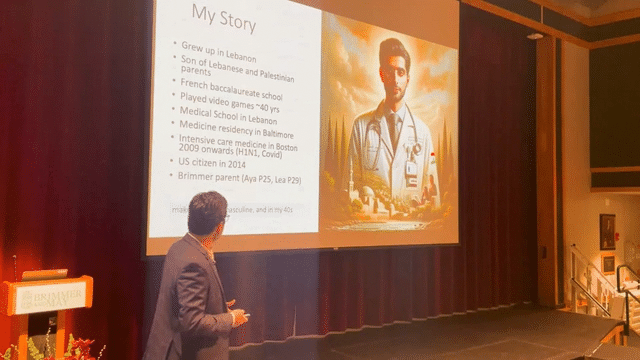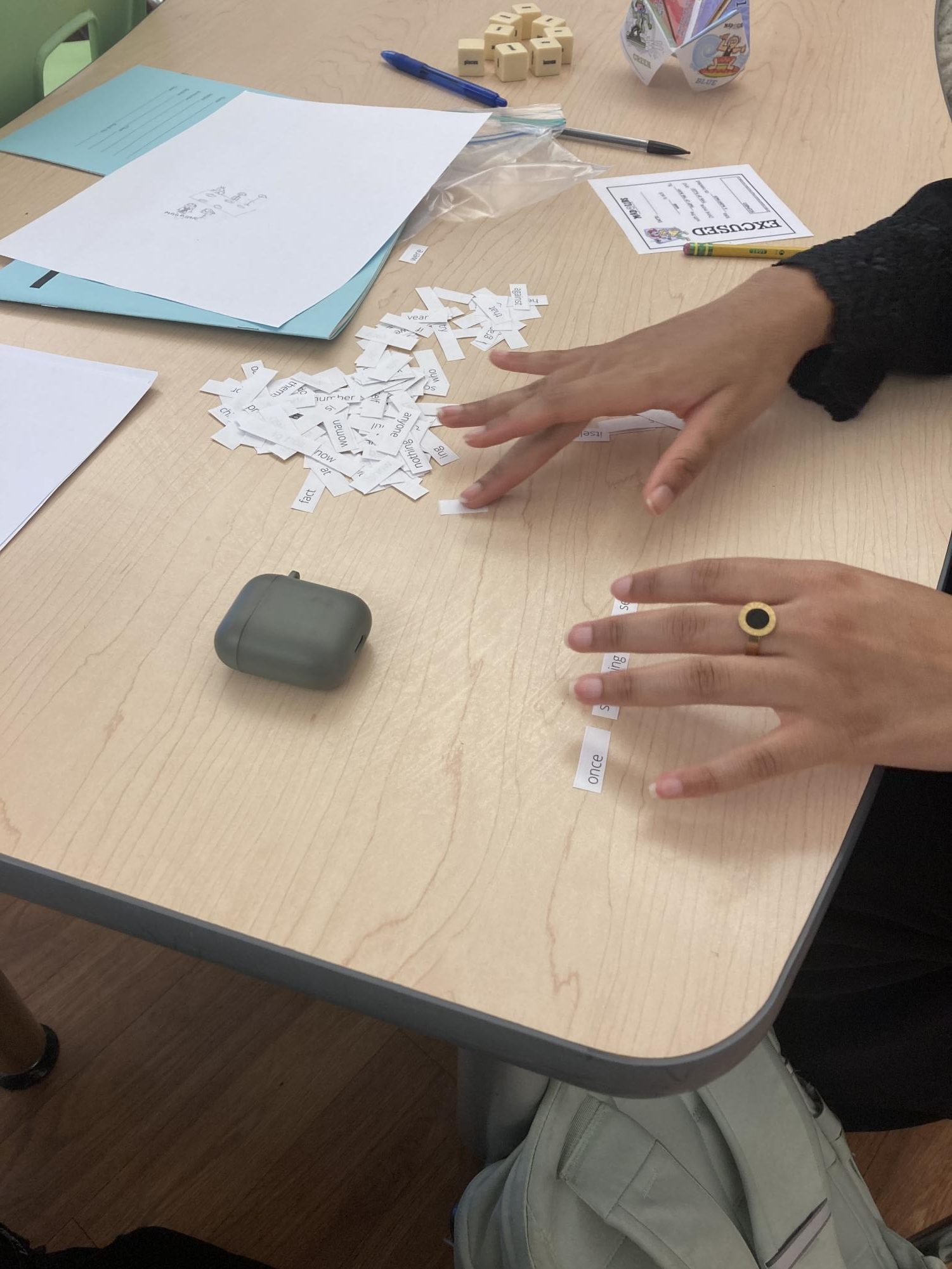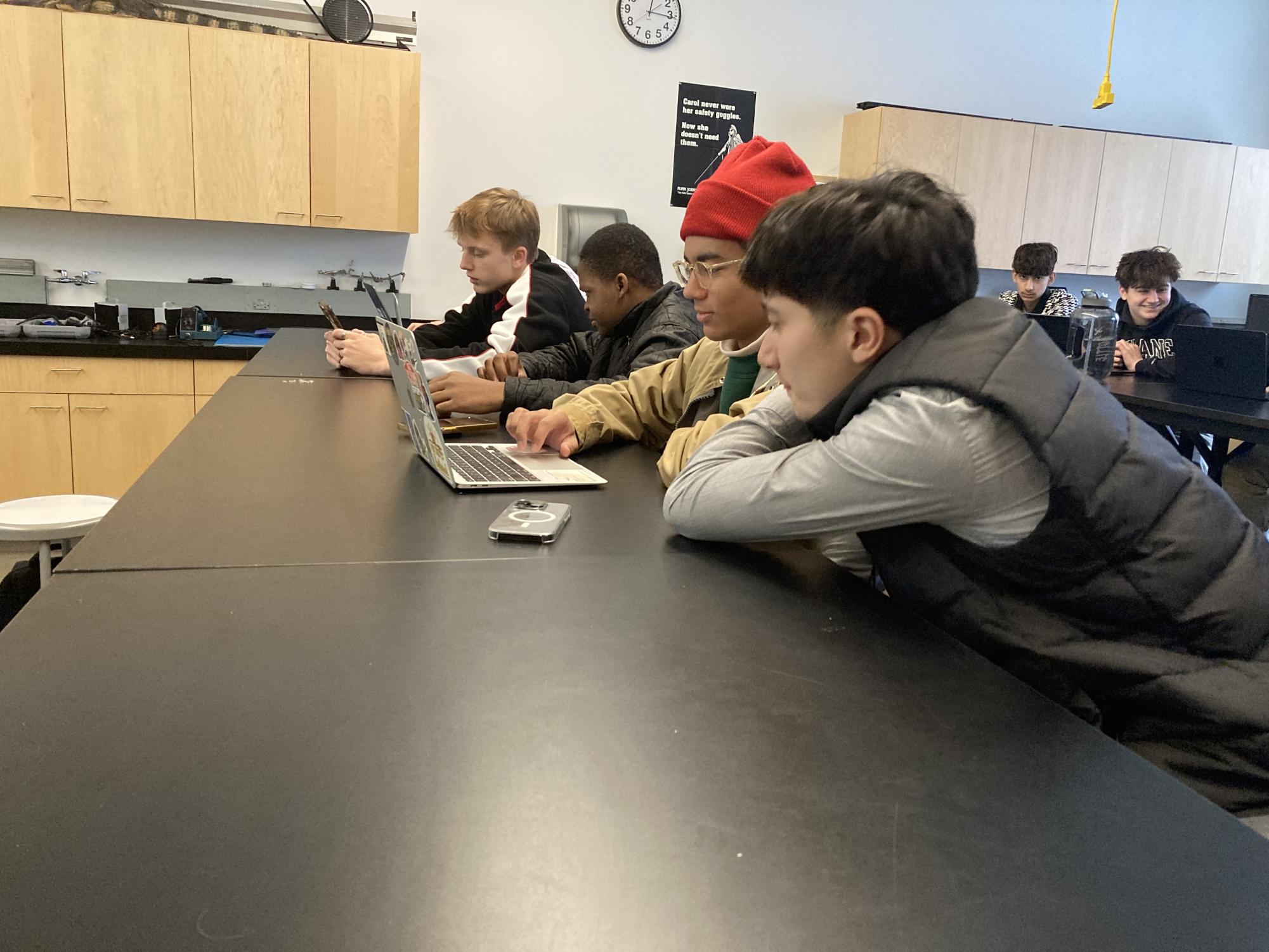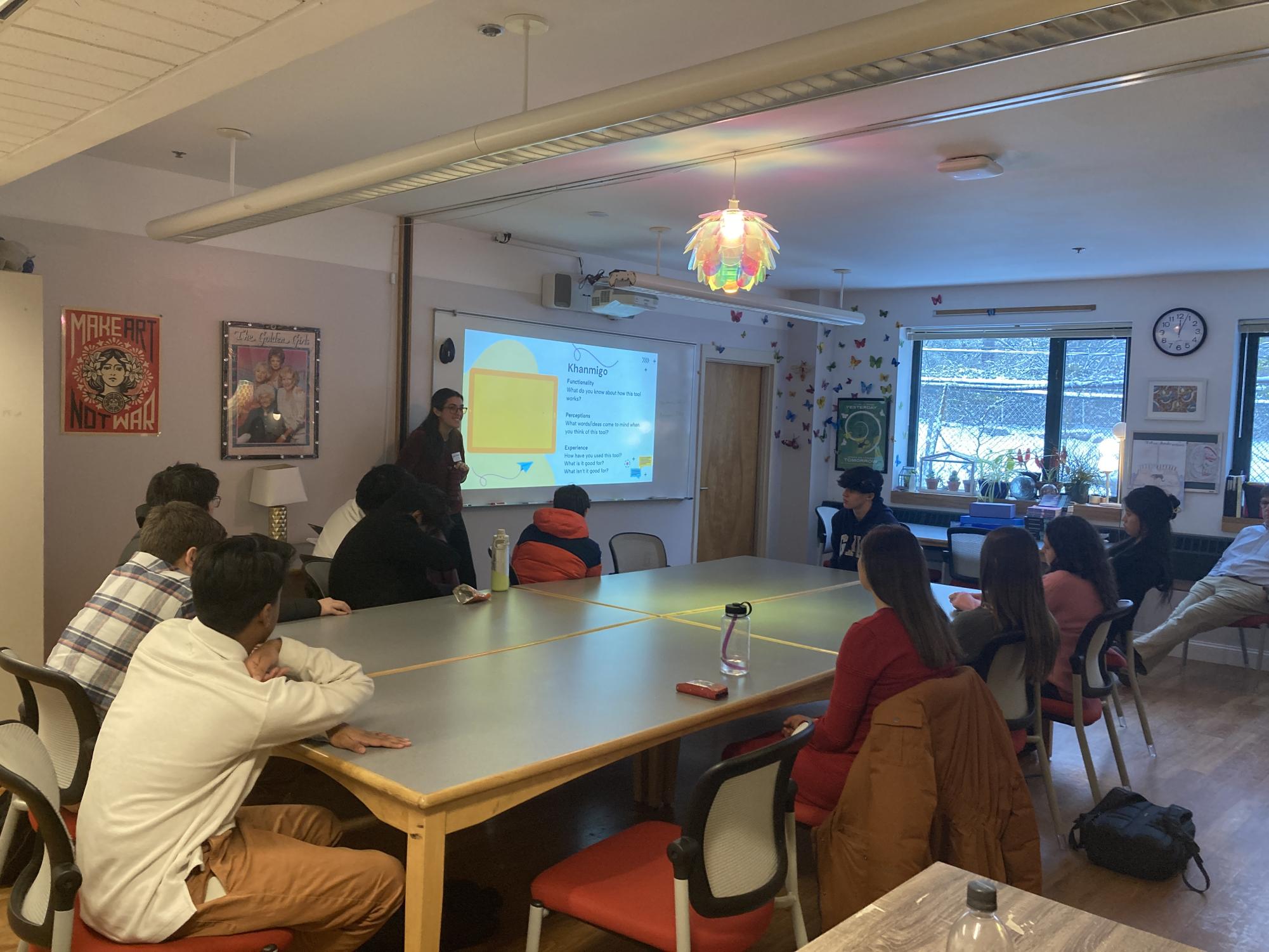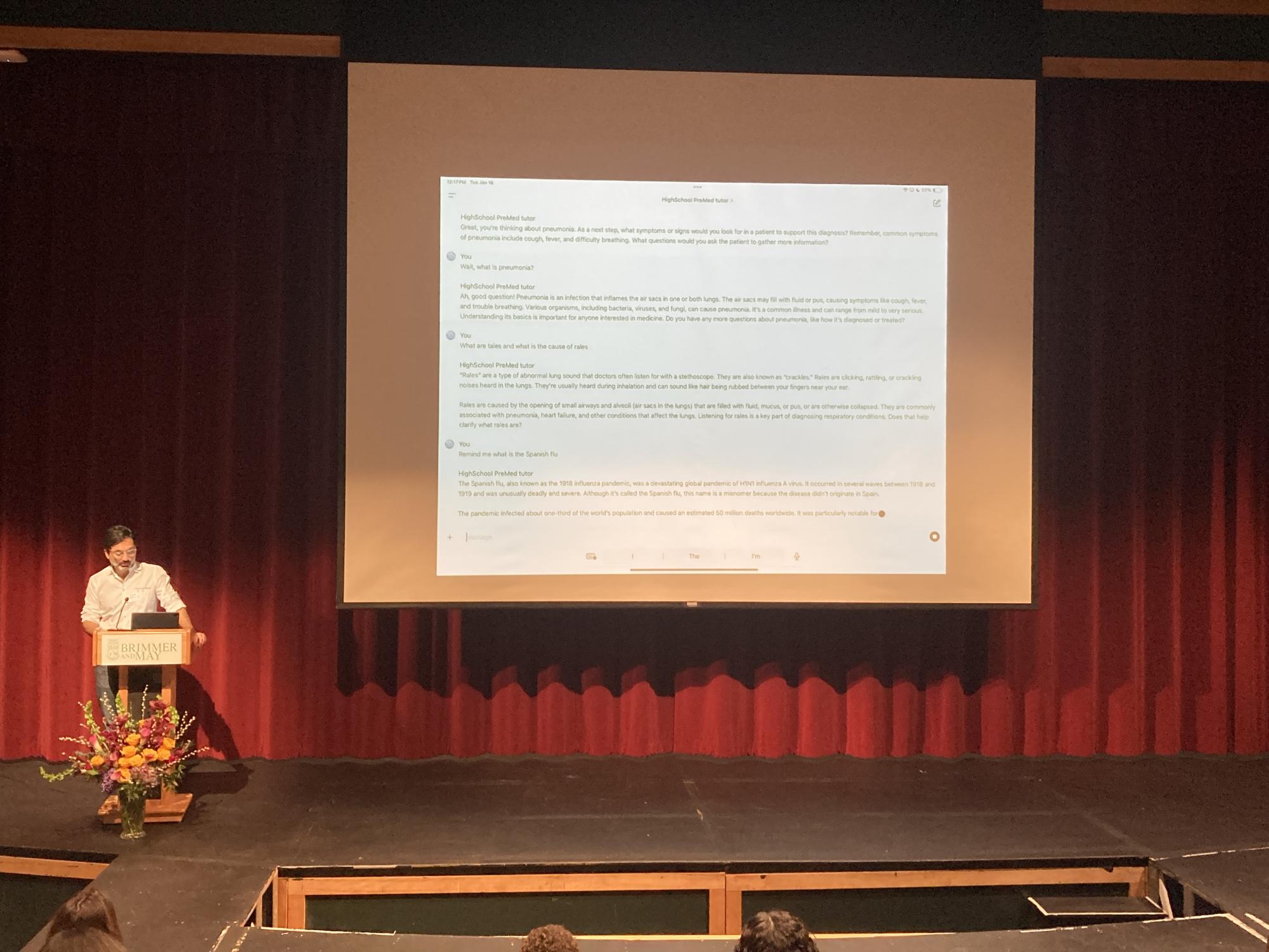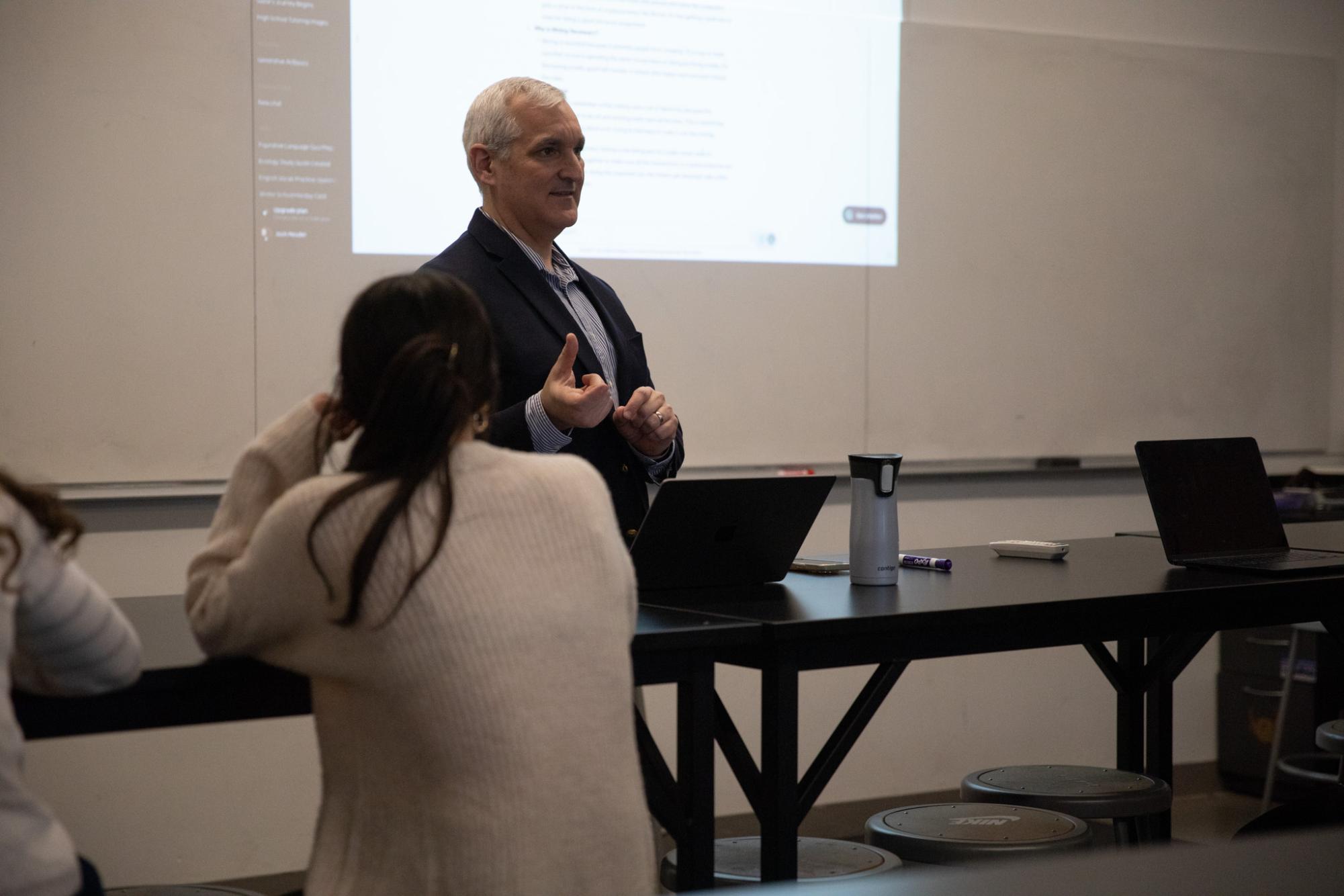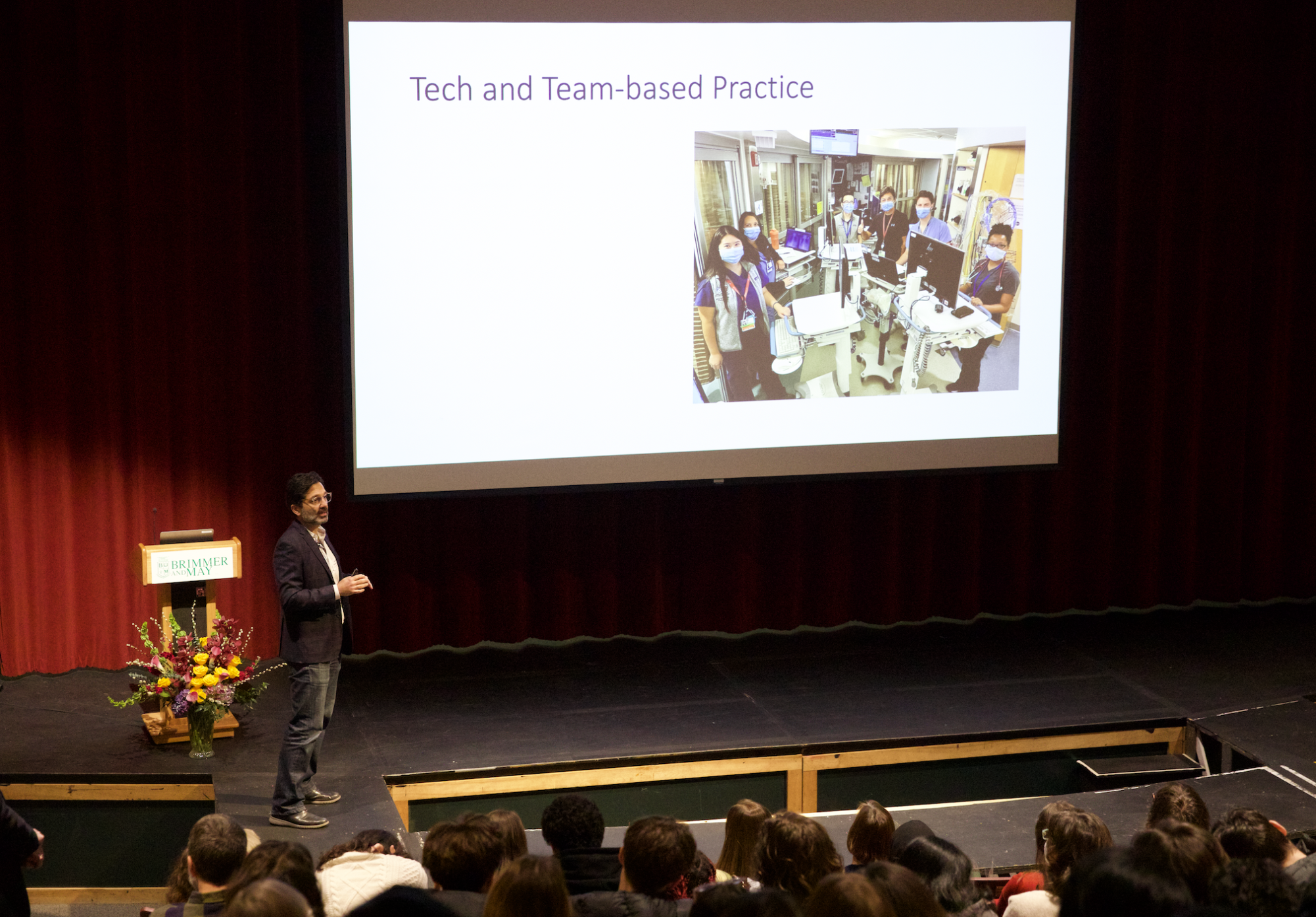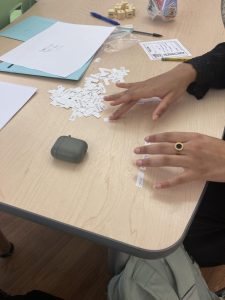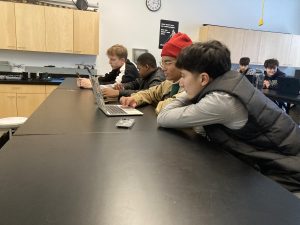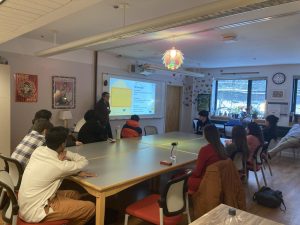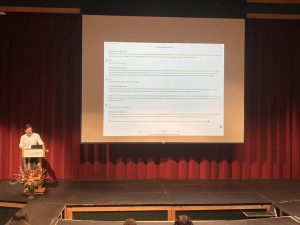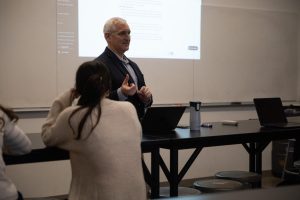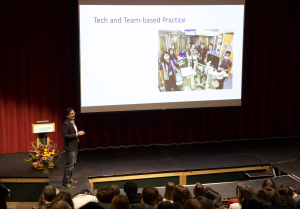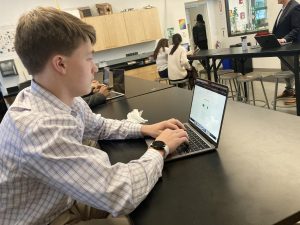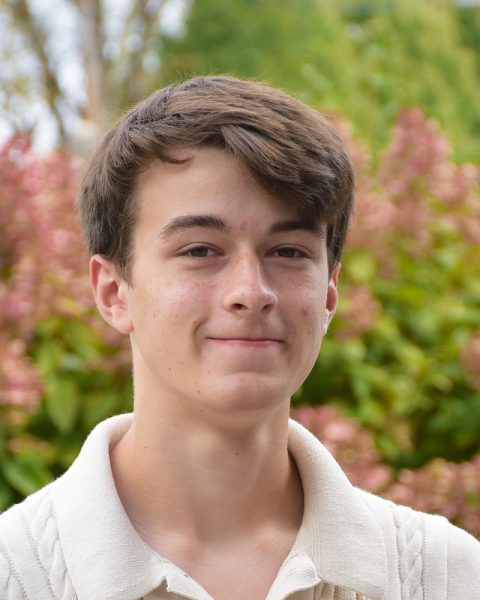After the keynote address, students chose to attend a breakout workshop about how AI is disrupting various fields.
Jesse Roberts & Angie Ward
Artificial Intelligence in Daily Life: Harnessing the Power of AI to Work Smarter Everyday
In this interactive session, we will introduce several concepts and provide students a launching point to learn more about AI, answer some misconceptions, and demonstrate (in real time) how AI can be used to accomplish a wide variety of tasks. We’ll demonstrate how you can use AI for improvised meal planning, to plan our fantasy football teams, to create a Taylor Swift website, and more!
Jacob Prince
The Promise and Pitfalls of AI for Visual Recognition
This interactive workshop will explore how AI is changing our world and why we should think carefully about how we use it. We will first examine how AI systems actually work by introducing the concept of a "neural network" algorithm and showing how it can mimic different processes in the human brain. Then, we will explore how these brain-inspired algorithms are rapidly changing our society. A significant portion of our discussion will center around AI in facial recognition technology – its advancements, capabilities, and the ethical questions it raises. Is it always good to push for more and more powerful AI systems? What are the consequences when AI gets it wrong? Building on these conversations, we will discuss practical steps for how students interested in AI, psychology, or neuroscience can explore these topics and take steps toward careers in these exciting fields that will continue to transform our world.
Shaun Clarke
Filmmaking and AI
This workshop will trace the evolution of filmmaking technology from its origin through today. We will discuss the impact of innovation on creativity and think about what potential AI can bring to the art form in the future.
Guilia Taurino, Ph.d
AI and the Arts
In the past few years, we have witnessed a surging debate on the relationship between AI and human creativity. Many experts and practitioners have asked whether machines can truly be creative or if they are, in fact, merely reproducing human artifacts in a mechanical way. Some have started questioning the very essence of creativity and knowledge as purely human features. While the discussion on machine creativity is still open for debate, in this workshop we will explore the relationship between AI and the Arts by asking: what does AI know about the Arts? We will take as a case study a Fine Arts collection and look at how state-of-the-arts machine learning algorithms perform on digitized archival records - drawings, prints, paintings. The students will be asked to actively participate in this evaluation process, by choosing a preferred artifact from the digital repository and testing a pre-trained model for image classification. We will then collectively observe the results and discuss the outputs. By the end of the workshop the students will learn how to think critically about AI in application to cultural heritage, and gain understanding of the practice of curating digital records in collaboration with machines.
David Cutler '02, Brimmer and May U.S. History, Government, and Journalism Teacher
Journalism in the Age of AI: Tools, Ethics, and Opportunities
Learn how AI tools are revolutionizing news reporting, enhancing efficiency, and enabling in-depth analysis. You will also delve into the ethical challenges AI poses, including misinformation risks and algorithmic biases. This session will also tackle the responsible use of AI in journalism, highlighting its benefits and potential pitfalls.
John Tarbox
Searching For a Job in the Age of AI
This workshop will consider the technology and trends with AI and how companies are using it to make hiring decisions, as well as the issues that come with this practice. We will also discuss the problems that come with using AI to both make hiring decisions and as a person looking for a job.
Sarah Robertson Kahn
Beyond the ChatGPT Essay: How to Use AI to Improve Critical Writing Skills
In this workshop, students will learn about how various types of AI writing tools work — from ChatGPT to Grammarly to Khanmigo, and more — and discuss the ways in which each might be used for different writing purposes. Students will debate the ethical implications of the use of AI in writing and can experiment with different AI tools in order to draft or refine their own writing.
Will Arndt, Brimmer and May MS English Teacher
Breaking Through Writer’s Block: Using AI Ethically, Effectively, and Creatively
Writers have gathered in formal and informal communities to share their ideas with one another and find inspiration for future projects. C.S. Lewis and J.R.R. Tolkien met with friends and colleagues in a group they called “The Inklings.” Mary Shelley wrote Frankenstein while on vacation with Lord Byron. Ernest Hemingway was essentially tutored by Gertrude Stein. AI can be your digital sounding board and inspiring friend in much the same way. In this session, we will learn how to harness the creative potential of AI to find new inspiration and work past writer’s block for both creative and analytical essays.
Dr. Raja Abdulnour
Call of Doctor Duty: Diagnose and Treat Your AI Patient
In this workshop, we will use a popular general-purpose large language model (LLM), GPT, to create an educational game around being a medical doctor. Participants will use their ChatGPT account to develop prompt strategies that will help create a virtual patient and a coach. Prompt engineering is an important skill that will maximize the benefit of AI tools like GPT. Participants will then “play” the role of the doctor. They will attempt to evaluate and treat a virtual patient with guidance from a GPT tutor and Dr. Abdulnour. In addition, participants will be encouraged to use their own GPT account to ask for help and seek guidance. By the end of the workshop, participants will be able to assess the pros and cons of a large language model (GPT), develop effective prompt strategies, evaluate, and manage a patient with a common complaint, and develop and test individualized AI coaches.
Joshua Neudel, Brimmer and May Head of Upper School
How to Make AI Your Personal Tutor
Are you curious how to leverage generative AI as a student? Are you unsure what are acceptable ways to use AI and what may not be acceptable? In this hands-on workshop, you will have an opportunity to learn more about generative AI and how they can use it in a positive way to help them as a student. Those that attend the workshop will learn how to use tools such ChatGPT, some of the best ways to interact with a chatbot, and practice creating learning and study tools. Come with your laptop or iPad and leave with a better way to improve your studying!
Editors' note: With permission from the School, The Gator has copied the description of breakout sessions from the event's site.


